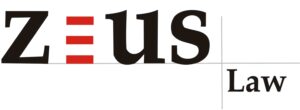Here is all your need to know about Mergers & Demergers In India
Mergers and demergers are critical restructuring tools that facilitate momentous growth and diversity for companies.
By Sandeep Bhuraria, Senior Partner, and Ms. Parijat, Senior Associate, ZEUS Law Associates: In India, the process of mergers and demergers is by way of a tribunal-governed scheme and as per the procedure prescribed under the Companies Act, 2013 (“Act”). The tax implications on a Scheme of Arrangement between companies involving mergers and amalgamation are dictated in terms of the Income Tax Act, 1961 (“IT Act”).
Statutory Scheme and Definitions
The term ‘merger’ has not been defined under the Act, but the concept in essence is explained. The merger is the process of combining two or more distinct entities in such a manner that it amounts to not only the accumulation of the assets and liabilities of the said entities but also the said entities that are organized into one business entity.
Section 2 (1B) of the IT Act defines ‘amalgamation’ as a merger of one or more companies into another company or a merger of two or more companies to form one company in such a manner that the assets and liabilities of the amalgamating companies vest in the amalgamated company.
The concept of ‘demerger’ has been elucidated in Section 2 (19AA) of the IT Act, wherein a demerged undertaking is transferred by a demerged company to the resulting company as a going concern, pursuant to a Scheme of Arrangement sanctioned under Sections 230-232 of the Act.
The composite procedure for Mergers and Demergers:
A scheme of Arrangement
- A scheme of arrangement is a National Company Law Tribunal (“NCLT”) approved agreement between two or more companies and its shareholders and creditors. The same may involve the intricacies of mergers and demergers and is prepared in accordance with the provisions envisaged under Sections 230-232 of the Act and accompanying rules thereto.
In principle approval of the Scheme of Arrangement
- The Scheme of Arrangement proposing the merger and/ or a demerger has to be principally approved by the Board of Directors of the transferor companies and the transferee companies.
First Motion Application
- Pursuant thereto, an application under Section 230(1) of the Act, on behalf of the companies, is to be filed before the National Company Law Tribunal (“NCLT”) for dispensation of the meetings of shareholders and creditors of the said companies if the requisite no objection certificates have been appended in the said application or in the alternative, to pass appropriate orders for convening meetings of the creditors /shareholders.
Convening of meetings pursuant to the Orders of NCLT
- If the NCLT has passed directions for convening meetings of a particular class of creditors /shareholders, then the notice and agenda of the said meeting shall be sent to all such creditors/shareholders and shall be duly published on the website of the company and by way of an advertisement in the newspapers.
- Once a resolution to approve a Scheme of Arrangement has been approved by 75% of the creditors/shareholders in the said meeting, contents thereof are binding on such creditors/shareholders of the companies.
- A chairperson and scrutinizer’s report are also prepared in respect of the meeting so conducted, pursuant to the orders of the NCLT. A copy of the said application is also served upon the Regulatory Bodies and Statutory Authorities.
Second Motion Application
- Thereafter, a second motion petition is filed before the NCLT seeking approval of the Scheme of Arrangement. The NCLT may pass appropriate directions to approve the said Scheme of Arrangement subject to modifications, if any, and the NCLT is empowered to oversee the implementation of the said scheme. Once the approval of the NCLT is accorded to the Scheme of Arrangement, the same is binding on the company, its members and creditors.
Tax implications on a Scheme of Arrangement
A transaction involving mergers and demergers are generally considered as tax neutral transactions and Section 47 of the IT Act exempts such transactions from the purview of ‘transfer’ and hence, such transactions are not amenable to capital gains tax.
Tax benefits on Mergers:
- As per section 47(vi) of the IT Act, capital gains arising from the transfer of assets by the amalgamating companies to the amalgamated company is exempt from tax if the amalgamated company is an Indian Company.
- Under section 47(vii) of the IT Act, capital gains arising from the transfer of shares by a shareholder of the amalgamating companies are exempt from tax as such transactions will not be regarded as a ‘transfer’, if the same is made in consideration of the allotment of shares in the amalgamated company; and the amalgamated company is an Indian company.
Tax benefits on Demergers:
- According to Section 47(vib) of the IT Act, if in a demerger, there is any transfer of a capital asset by the demerged company to the resulting company and if the resulting company is an Indian organization, the such a transaction will not attract levy of capital gains tax.
- In terms of Section 47(vid) of the IT Act, if there is an issue or transfer of shares by the resulting company in consideration of the demerger of the said undertaking(s), to the shareholders of the demerged company, the transaction will not be amenable to capital gains tax.
(This Article is solely for information purposes, does not constitute legal or professional advisory and should not be relied upon or used as a substitute for legal advice from an attorney.)
About the Authors:
 Mr. Sandeep Bhuraria, has been a practicing lawyer for about 30 years and is a Senior Partner at ZEUS Law Associates. He leads the Commercial Litigation and Restructuring division. He is well-versed in the intricacies of Indian Commercial, Civil, and Insolvency Laws. He regularly advises foreign investors as well as Indian entrepreneurs on their legal strategy with respect to restructuring their businesses in India. Parijat, is a Senior Associate at ZEUS Law Associates and works in the Commercial Litigation and Restructuring vertical.
Mr. Sandeep Bhuraria, has been a practicing lawyer for about 30 years and is a Senior Partner at ZEUS Law Associates. He leads the Commercial Litigation and Restructuring division. He is well-versed in the intricacies of Indian Commercial, Civil, and Insolvency Laws. He regularly advises foreign investors as well as Indian entrepreneurs on their legal strategy with respect to restructuring their businesses in India. Parijat, is a Senior Associate at ZEUS Law Associates and works in the Commercial Litigation and Restructuring vertical.
 ZEUS Law Associates is an ISO-certified full-service corporate commercial law firm with a team of dedicated and experienced lawyers well-versed in handling domestic and cross-border transactions across sectors, jurisdictions, and regulatory landscapes. The firm’s distinct practice areas include Corporate & Commercial Law, Real Estate & Infrastructure, Litigation, Alternate Dispute Resolution, Indirect Tax, and NRI Services.”
ZEUS Law Associates is an ISO-certified full-service corporate commercial law firm with a team of dedicated and experienced lawyers well-versed in handling domestic and cross-border transactions across sectors, jurisdictions, and regulatory landscapes. The firm’s distinct practice areas include Corporate & Commercial Law, Real Estate & Infrastructure, Litigation, Alternate Dispute Resolution, Indirect Tax, and NRI Services.”



